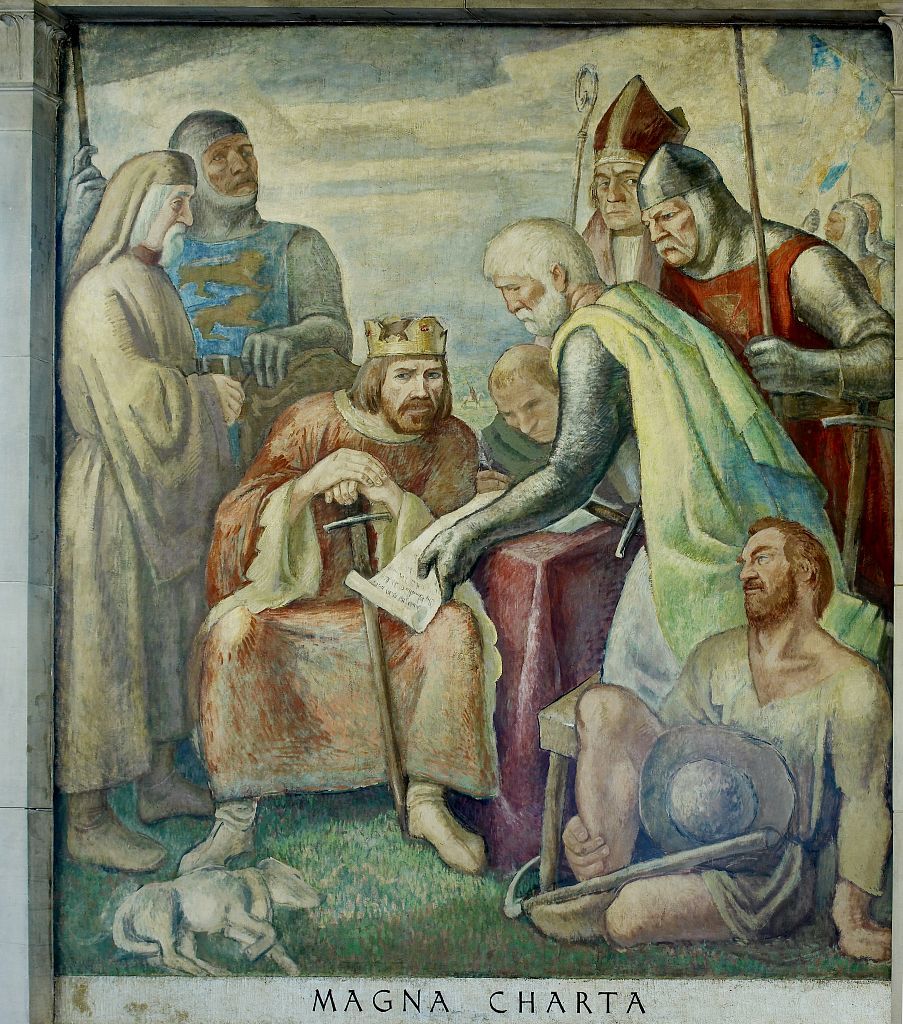7.2 The Origins of Government
LEARNING OBJECTIVES
By the end of this section you will discover:
- That forms of government have been constantly evolving, especially in the last five hundred years.
- That government originally was believed to have been divinely instituted.
- That gradually, especially in England, this notion came to be rejected in favor of the understanding that governments are human institutions.
Let’s begin our exploration of the Philosophy of Government with a discussion of theories about the origins of government. It’s probably right to say that government is as ancient as the first group of people who wished to live together. All human groups have some sort of rules structure. If not, such groups would not survive. The earliest kinds of government then were likely tribal or clan-centered systems. History notes the emergence of more formal kinds of government first in the ancient river valley civilizations of Egypt and Mesopotamia. There, first city-states, then empires emerged. For many millennia kingdoms and empires formed the most cohesive social organizations. It was only in relatively modern times that nation-states began to dominate the political landscape. It has been especially in this modern period that political philosophy has emerged as a way of reflecting on government.
During the middle ages, it was assumed in Europe that the king or emperor had been appointed by God (via the church) and that these rulers, therefore, held absolute authority over citizens. This Divine Right of Kings theory was beneficial both to the church and monarchs. The medieval church was able to exact concessions from monarchs in exchange for their blessing, and monarchs could count on fear of Divine sanction (coercion, again) to maintain their political authority.

Although this dogma had been weakening steadily at least since the signing of the Magna Carta in 1215 A.D., its most important challenge came in 1651 when philosopher Thomas Hobbes published his Leviathan. The setting of this publication was the English Civil War (1642–1651) during which, for the first time in English history, citizens rebelled against their king and executed him. Clearly, such an event was a clear rejection of the doctrine of Divine Right and gave rise to questions about the nature and purpose of government. Hobbes’ work was a pivotal contribution to a new understanding of political systems.
Works Cited
Highsmith, Carol M. “Oil Painting ‘Magna Charta’ Located in Stairway of Great Hall, Department of Justice, Washington, D.C.” The Library of Congress, Oct. 2007, https://www.loc.gov/item/2010720201/. Accessed 13 May 2022.

